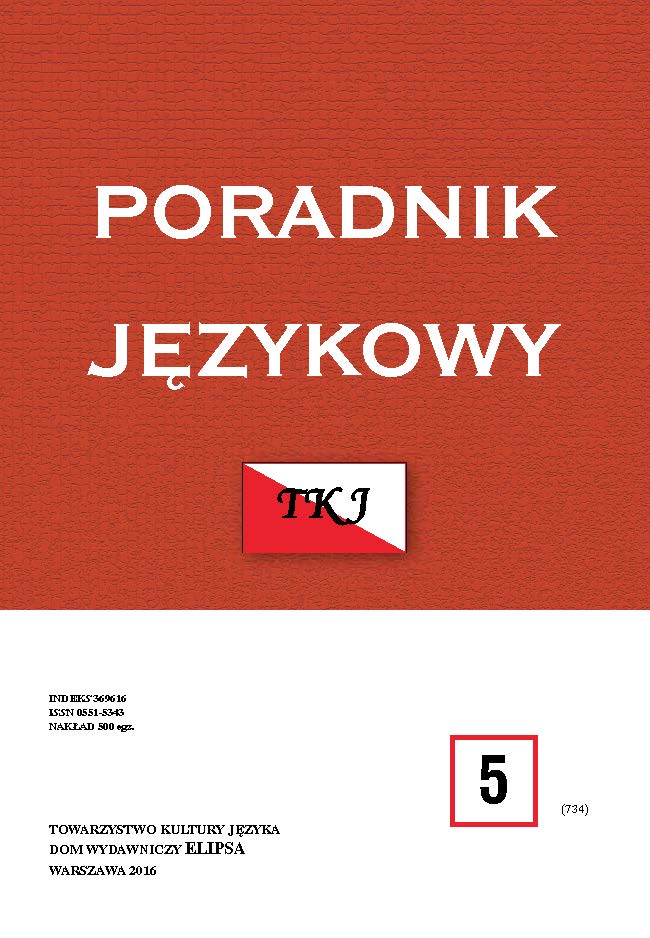OJCZE NASZ – PRZEKŁAD – MODLITWA. PROBLEM DERYTUALIZACJI JĘZYKA POLSKICH TRANSLACJI BIBLIJNYCH
Our Father (Ojcze nasz) – a translation – a prayer. The problem of deritualisation of the language of Polish translations of the Bible
Author(s): Tomasz LisowskiSubject(s): Christian Theology and Religion, Language and Literature Studies, Studies of Literature, Theology and Religion
Published by: Dom Wydawniczy ELIPSA
Keywords: Our Father; Ojcze nasa; prayer; Bible
Summary/Abstract: The aim of this paper is to demonstrate the process of deritualisation of the language of contemporary Polish translations of the Bible on the example of a culture-based text, that is Our Father [Mt 6:9–13]. It was initiated by the translators of Biblia Tysiąclecia (the Millennium Bible) [1965], who radically broke with the traditional linguistic form of this fragment of the New Testament. The analysis assumes the terminological discrimination used in the more recent research on the specifi city of linguistic phenomena in religious communication: the language of religion as a semiotic code and religious language as one of the signs within the code. From this perspective, Our Father, the text of the prayer used in church rituals and said as part of private piety, needs to be considered a text-formula falling into the conceptual sphere of the term the language of religion. Contemporary Polish translations of the fragment of the Gospel According to St. Matthew 6:9–13, in turn, which prioritise the most adequate communication of Biblical contents possible with a language that is fully understandable to the contemporary reader, fall into the sphere of the concept religious language. Selected contemporary translations of Our Father were subject to a linguistic analysis consisting in identifying the distribution of Polish equivalents of the original Greek New Testament. This allowed the following conclusions: 1. Our Father, as a fragment of the Gospel According to St. Matthew, is treated by the contemporary translators of the Holy Scriptures as an integral part of the Biblical text, subject to the principal translation rule, that is faithful rendering of the sense of the Greek original with linguistic devices of contemporary Polish, the consequence of which is a radical departure from the traditional archaic form of the prayer. 2. The traditional form of Our Father, the origin of which dates back to the Bible translations by Jakub Wujek [1593] and Daniel Mikołajewski [1632], which is linguistically archaic today, has become a sign of the language of (Catholic and Protestant) church rituals as a prayer text-formula, which is not subject to modernization. 3. The process of deritualising Our Father has still been in progress, the effect of which is new Catholic, Protestant, ecumenical translations of the prayer (and the Holy Scriptures) that are independent of the code of religious rituals.
Journal: Poradnik Językowy
- Issue Year: 2016
- Issue No: 05
- Page Range: 7-27
- Page Count: 21
- Language: Polish
- Content File-PDF

